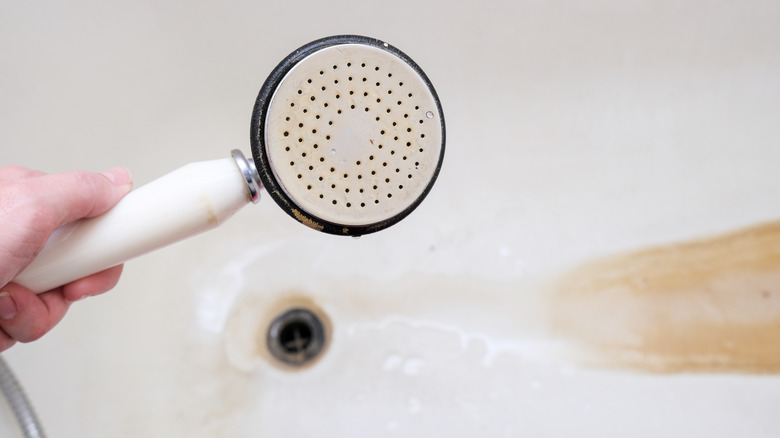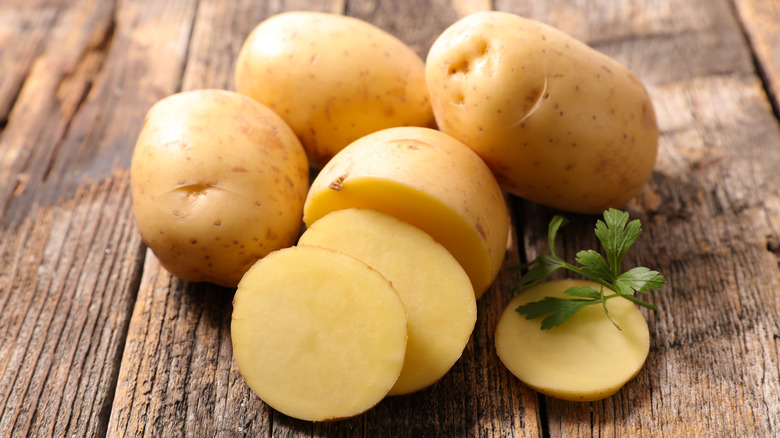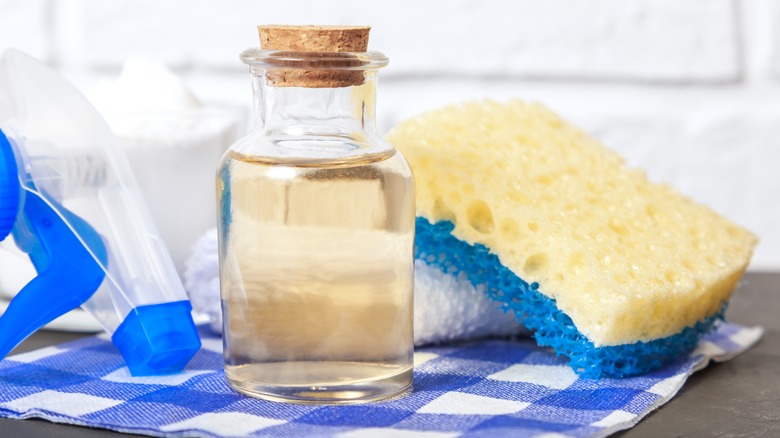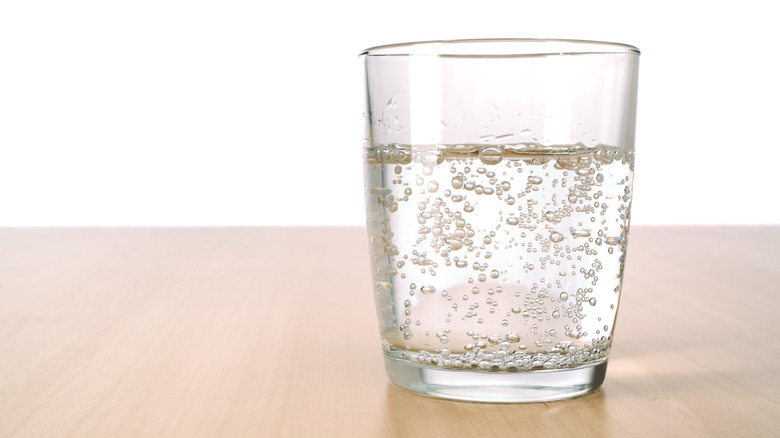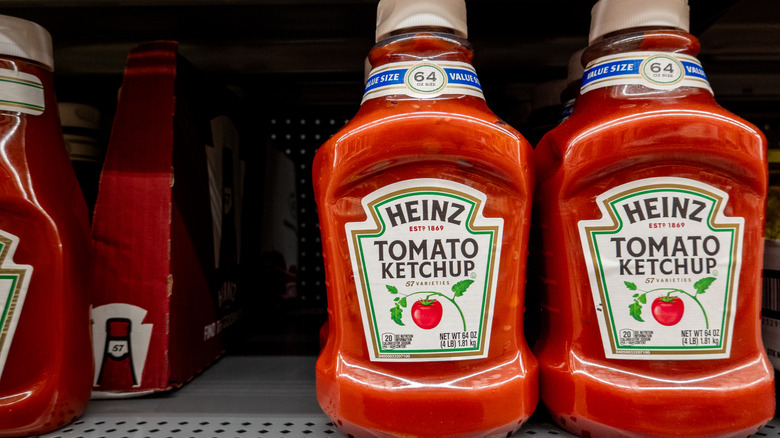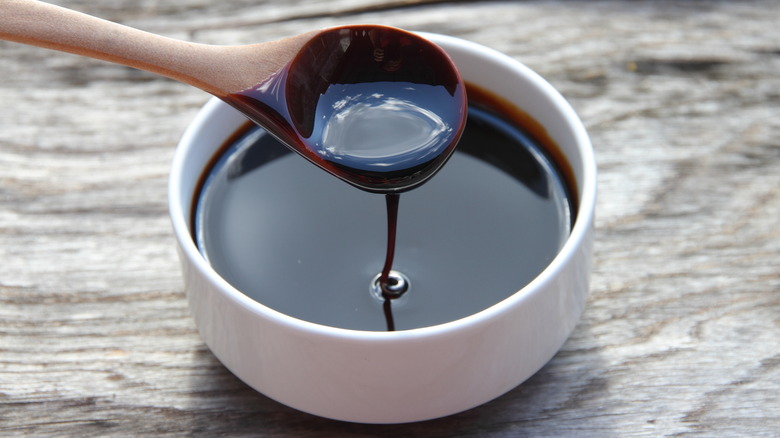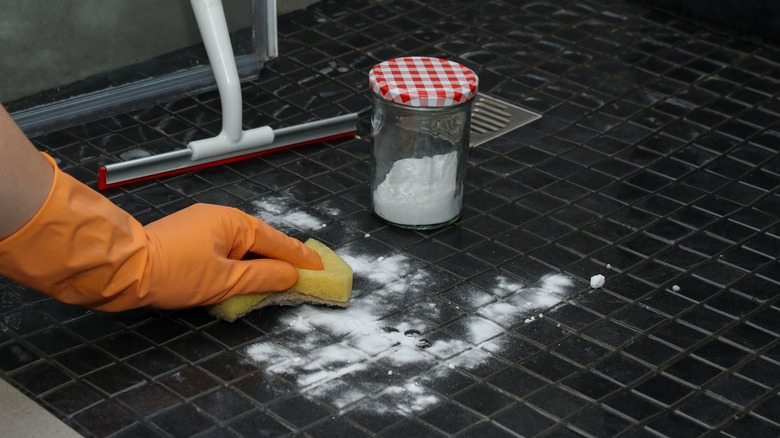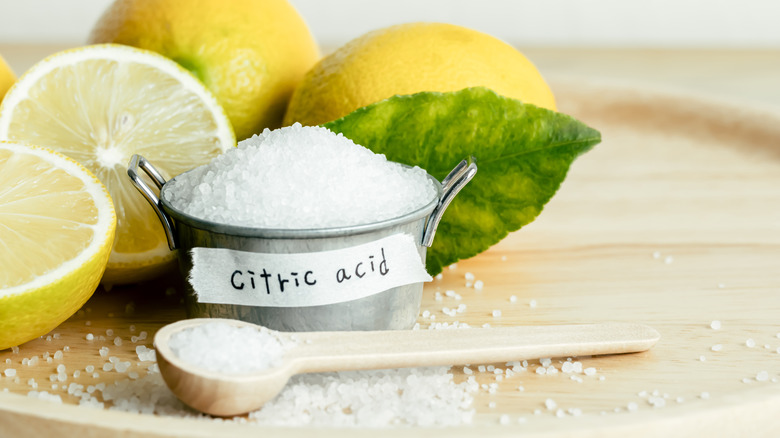Natural Ingredients You Could Be Using To Banish Rust From Your Shower & Bathtub
Keeping the shower or bathtub clean sometimes feels like a never-ending battle. Between soap scum, mildew, and even rust, it can be difficult to maintain those glossy tiles and streak-free glass that you desire. While some commercial cleaners may be effective at getting rid of rust, you might not always have them available when the urge to clean strikes. Moreover, many of these cleaners include chemicals that you may not want to use in your home or around your family.
Fortunately, there are some natural ingredients that can help you get rid of rust in the shower or bathtub. The ingredients featured below are all commonly found in kitchens, so you can use them without worrying about exposing yourself or others to potentially dangerous chemicals. Plus, you likely already have many of these already on hand. Continue reading to learn how to use each of these ingredients most effectively, along with some key considerations to keep in mind as you tackle those unsightly rust spots and stains in the shower and bathtub.
Use a sliced potato to erase rust
When you think of potatoes, you probably picture french fries, mashed potatoes, shepherd's pie, and other food items. While it likely isn't one of the first things that comes to your mind, believe it or not, you can also use potatoes to get rid of rust. Sprinkle some baking soda and salt on the potato and use it to scrub rust-covered areas.
The reason this hack works is because potatoes have a lot of oxalic acid, a compound that is present in many commercial rust cleaning products. When oxalic acid comes into contact with rust, a chemical reaction takes place, and the rust is turned into iron oxalate. Iron oxalate is a water-soluble compound, so you'll be able to wash most of the rust down the drain. In addition, the baking soda and salt on the potato will act as an abrasive to remove any remaining rust residue that is left in the shower or tub.
Try using vinegar to eliminate rust
Vinegar is acidic, which makes it another top candidate for removing rust in your shower or tub. When acids, such as the acetic acid in vinegar, come into contact with rust, the resulting chemical reaction forms salt and water. The rust is essentially dissolved and able to simply be washed or wiped away.
Before you try using vinegar to eliminate rust in the shower or tub, keep in mind that there are different types of vinegar. Cleaning vinegar will have the strongest concentration of acetic acid (up to 24%), while distilled white vinegar and other cooking varieties will have closer to 5% acetic acid. This means that cleaning vinegar will be the most effective. However, you should still find some success using cooking vinegar, but you might need to repeat the process a few additional times or use a little extra elbow grease to get rid of all the rust. For best results, leave the vinegar on the rusty area for at least 12 hours. If the rust is on a vertical surface or a faucet, where vinegar won't be able to sit, you can saturate a microfiber towel with the vinegar and lay or wrap it around the affected area.
Let club soda help you clean up rust
When you're thinking about how to remove rust from your tub or shower, you probably wouldn't think of trying club soda. However, believe it or not, this liquid is for more than just drinking — club soda might be able to help you in the bathroom. The reason this beverage can be effective is because of the fizzy bubbles that are created by the carbonic acid. These bubbles can break down rust and essentially reverse corrosion.
However, it is important to note that club soda likely isn't ideal for all rusty situations in the tub or shower. It will likely only work for areas with a light coating of rust. Moreover, because the bubbles from the carbonation need some time to break through the rust, this hack is probably best when used on shower or tub floors, instead of vertical surfaces. This way, you'll be able to block the drain so the liquid can sit over the affected rusty area.
Squeeze some ketchup over rust spots
Ketchup is another ingredient that you may be surprised to see on this list. However, when you think about the fact that ketchup is made using vinegar, and vinegar is one of the items that we've already listed as an effective natural rust remover, it all should start to make sense. Remember, acids like the vinegar included in ketchup work to break down rust, making it easier to remove from various surfaces.
To try this cleaning hack, squeeze ketchup over any rust stains in the shower or tub. Because you'll need to let the ketchup sit for a few hours, this tip will be most effective on the shower or tub floor, or other flat surfaces, as opposed to vertical walls where the ketchup will just drip down. After letting the red condiment sit, come back and rinse it away. It should take most of the rust down the drain with it. If there is some rust remaining, grab your scouring pad and work more of the acidic ketchup into it. After you've tackled your rusty bath or shower, head to the kitchen and use that same bottle of ketchup to get rid of rust on cast iron pans.
Put molasses to work to eliminate rust
Molasses is a thick syrup with a very rich and sweet taste. It is commonly used for making candy or baking, but it can also help you get rid of rust in the shower or tub. The sticky substance is also quite acidic, meaning that it can eat away at rust. Soon, you'll be left with a clean bathroom.
To use molasses to remove rust, you'll need to thin out the syrup a bit. Stir in some water before applying it to the rust-covered areas in your shower or bathtub. Again, since this is a viscous mixture, you will only be able to use it over areas along the base of the tub. Block the drain and dump enough of the molasses and water mixture in to cover these sections. Let the molasses sit on the rust spots for several hours — or even longer — so that it has a chance to work. Then, rinse it away and follow up with some scrubbing, as necessary. Because you'll want to give the molasses time to work, this trick may not be the best for anyone who only has one bathroom. The tub or shower will be out of commission as the molasses does its job.
Combine lemon and baking soda for a rust-fighting solution
There are several unexpected ways to use baking soda around the house. It works as a safe and chemical-free cleaning product on everything from carpets to surfaces in the kitchen or bathroom. One of the things that makes baking soda so effective is its abrasive properties. When it is scrubbed over stubborn stains and messes, the tiny granules work to release stuck-on gunk.
One of the many ways you can benefit from the powers of baking soda is by using it to remove rust from your shower or tub. The mildly abrasive cleaner will be even more effective when paired with a lemon. As an acid, the lemon can break through and dissolve the rust, while the baking soda can help you scrub away any remaining residue. Try slicing a lemon in half and sprinkling some baking soda over one of the flat halves. Use the baking powder-sprinkled half as a scouring pad and scrub at the rusty areas in the tub. Add more baking soda or switch to the other half of the lemon as needed. The powerful combination of baking soda and lemon can help eliminate rust on stainless steel surfaces as well, along with other areas in the home.
Use some citric acid to clear rust off drains and fixtures
Citric acid is a compound which, as you may guess, is derived from citrus fruits, such as limes and lemons. After learning about the rust-removing properties of lemons and other acids, it should come as no surprise that citric acid can also help you clear away rust on shower and bathtub fixtures and drains. Citric acid will break down, or solubilize, iron oxide (rust), making it possible for you to wash much of the mess away.
To use citric acid to clear rust out of your shower or tub, sprinkle the powder over the rusty area and dampen it slightly with some water. Let the solution sit over the rusty area for several minutes before using a scouring brush to scrub away any remaining residue. Then, rinse the cleaner, along with the rusty remains, down the drain. Alternatively, or for rust stains that are higher up on the sides of a bathtub, you can try soaking them in a citric acid solution. Fill the tub with hot water and add citric acid (at least 10% of the total amount of water), some methylated spirits, and a little dish soap. Let everything sit for a while before returning to scrub the stains. Always wear gloves and long sleeves and protect your eyes when working with citric acid to avoid an accidental burn.
